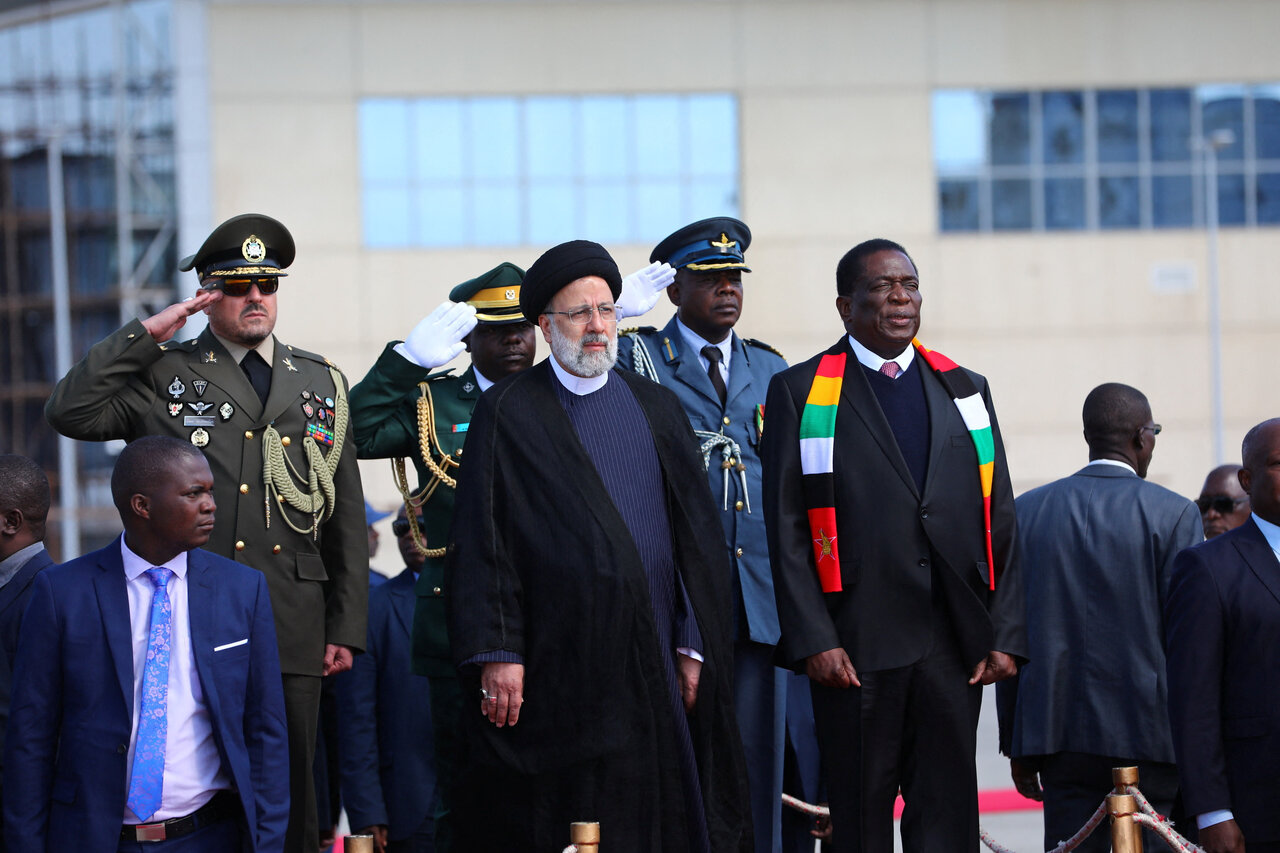Iran’s growing footprint in Africa despite ire in U.S., Israel

TEHRAN- A new report has revealed that Iranian President Ebrahim Raisi’s recent trip to Africa took place despite strong opposition from the U.S. and Israel.
Raisi wrapped up his three-nation tour of Kenya, Uganda and Zimbabwe on Thursday, becoming the first Iranian president to engage in an African tour in more than a decade. Washington and Tel Aviv allegedly tried to stymie the diplomatic flurry, but to no avail.
Raisi has been looking to alleviate the pressure of U.S. sanctions by turning to non-Western countries and diversifying Iran’s economic partners. A day after the Iranian president arrived in Tehran, the country’s foreign ministry announced Iran’s trade with Africa is expected to increase more than $2 billion this year. Prior to the trip, Iran’s foreign minister called Africa the “continent of opportunities” due to its high economic potentials.
When Raisi was wrapping up his African tour, CNN decided to cover his trip while downplaying it. The news network called the trip an attempt by the Iranian government to shore up its alliances in the “developing world”. But the White House seems to have had a different take on the situation compared to what was being portrayed on American media. According to People Daily newspaper, the Kenyan government had to cancel Iran’s president’s visit at the last minute due to pressure from the U.S. and Israel. The fact that Kenya decided to move the meeting to another day and still receive the Iranian president shows the African country can greatly benefit from closer relations with Iran. So much so that it is willing to risk unnerving Washington in order to pursue ties with Tehran.
“Iran seeking to create a multilateral system that will serve as a counterweight”
Tehran’s efforts to build diplomatic momentum in Africa have also drawn angry reactions from the U.S. in Israel. Meir Ben Shabbat, who was the regime’s security advisor from 2017 to 2021, wrote a withering article on the Israel Hayom website criticizing Washington for its inaction against Tehran.
“While the U.S. sleeps, Iran is making inroads in Africa,” Ben Shabbat wrote. He also claimed that the Iranian president’s trip must be seen as part of a larger push to “influence the new world order, and create a multilateral system that will serve as a counterweight”.
The Times of Israel has also expressed concern about some of the host countries’ support for Iran’s peaceful nuclear program: “Ugandan President Yoweri Museveni, a U.S. ally on security matters, has previously voiced support for Iran’s nuclear program”.
The important question here is why are these African nations, which have been taking center stage since the beginning of the Ukraine war, willing to cooperate with Iran despite great pressure from the U.S. and Israel? Now that many countries are trying to make Africa turn to their orbits, why would the continent choose to strengthen ties with Iran and not the Islamic Republic’s opponents? To answer those we will this time take a closer look at what has being said about President Raisi’s Africa trip on African media.
Raisi’s meeting with African leaders mainly made headlines for Iran’s promised contribution to Kenya, Uganda and Zimbabwe’s economies. The Iranian president signed a total of 21 documents in the three countries which include Tehran making investments in various sectors.
In Uganda, Iran will be replacing the European Union, U.S., and UK in developing oil refineries and petrochemical production. The request made directly by Ugandan President Yoweri Museveni himself was brought up by the Ugandan government for the second time since it got rejected by previous Iranian President Hassan Rouhani.
In Zimbabwe Tehran has pledged support for the African country, which like Iran has been saddled by U.S. sanctions, in the information and communications technology sector. 20 years of sanctions by Washington, the EU and the UK have left the majority of Zimbabwe’s infrastructures in shambles. Iran will also be helping the African country in other areas snarled by crippling Western embargos.
Lastly Iran and Kenya will be cooperating in the field of animal health, livestock production, ICT, fisheries and education.
Apart from the economic benefits of friendly relations with Iran, African media also wrote a great deal about what had been perceived as “Iran’s respect” for African values.
Countries in the scenic continent have long received scathing criticism from the West for their anti-homosexuality provisions. In the most recent case, Washington imposed visa restrictions on Ugandan officials after Kampala acquired an anti-homosexuality bill in May.
Iran has showed a completely different approach in comparison to the West. During his stay in Uganda Raisi condemned Western countries for imposing their ideologies on African people and trying to promote the “ugly phenomenon of homosexuality”.
His trust in the host countries in being able to ensure his safety also garnered attention among Africans on social media. In Uganda for instance, President Raisi reportedly relied solely on the cordon set by the Ugandan government and did not think twice about sipping on the coffee given to him by a member of the African staff.
Raisi’s African tour also created a buzz among the Muslim population of the three countries. The Iranian president made sure to hold meetings with top clerics of not only Muslim but Christian minorities while staying in Africa. Many Africans were happy to get the opportunity to exchange thoughts with a top figure of a leading Muslim nation.
Overall it seems that the relations between Iran and countries in Africa are based on mutual interest and respect. Africa might be able to get more money from the West but in doing so, it will have to sacrifice its independence as well as some of its most important fundamental values.
